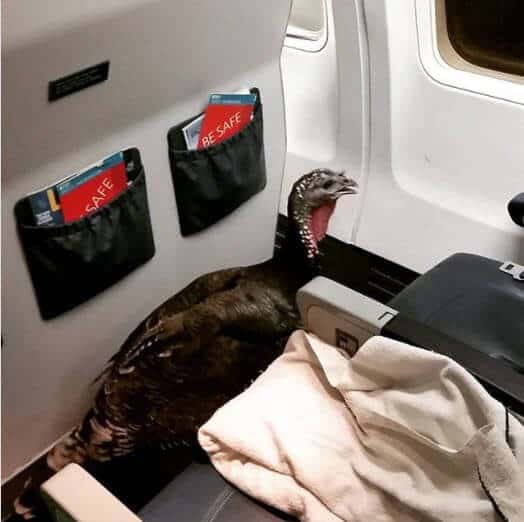We have all heard the internet rumors about someone boarding a plane with an emotional support monkey, turkey, or other strange animal and the person welding such an animal demanding that they are protected under Federal Law.
Well yes and no as the attorney answer goes. This blog is going to focus not on the laws affecting transportation, but how you, as a homeowner with tenants, a neighbor with a Home Owner’s Association, or a building landlord are under obligations to provide a “reasonable accommodation*” to those folks who may actually need an Emotional Support Animal.

Service Animals vs. Emotional Support Animals
First, let’s differentiate between a “Service Animal” and an Emotional Support Animal (known in the common vernacular as an “ESA”). Two areas of Federal law, the Americans with Disabilities Act or ADA, and the Fair Housing Act (“FHA”) give us guidance. A Service Animal has to be a dog. And this dog has to be trained to do work or perform tasks for the benefit of an individual with a disability. Period. But wait. That is what the definition used to be for the FHA and the ADA, but the ADA has now changed and added, … a miniature horse. So if a disabled person has a miniature horse or a dog that is trained to do work or perform tasks for a disabled person, that animal is a SERVICE animal. Service animals (and ESAs) are NOT pets, and are treated as a special exception category of animals vis a vis leases and Home Owner Associations regulations and rules. Most service animals are fairly obvious, you see them actually helping a disabled person with a variety of tasks. They sometimes wear a vest stating they are service animals. We are not talking about these useful and wonderful animals here.
We are going to focus on the other category of animals that are not pets. This is the ESA. What exactly is an ESA? These fall under the US Housing and Urban Development as “ other animals that do work, perform tasks, provide assistance, and or provide therapeutic emotional support for individuals with disabilities. Does this mean that a person who has an emotional support Cassowary (look it up, it is very interesting..and dangerous) can demand a reasonable accommodation to house this animal in their leasehold, house, or apartment. Up until very recently with HUD’s new guidance it could be a resounding “yes” (if all steps are followed..more in a bit). Now, under the new HUD guidance, not so much. First, the person who wants the Cassowary has to meet certain burdens of evidence. They have to request the Cassowary accommodation from their landlord or HOA. They have to provide documentation that the animal is necessary for their well-being from a healthcare professional, notably a Physician, Psychiatrist, Psychologist, and other health professionals. The landlord can ask for a statement from the requester’s health care professionals on how the animal provides support for the requester’s disability. The ESA support has to be related to the claimed disability of the person. The categories of disability, to protect the privacy of the disabled can only be described in general terms. Such as, he cannot be in crowds without Gatsby the guinea pig or she is afraid to go outside without Kresmere the turtle accompanying her.
There are further tests that the animal has to pass before the landlord or HOA may be required to provide the ESA accommodation. Test A is the question of whether or not this ESA is commonly kept in a household. Such animals are gerbils, small birds, cats, hamsters, turtles, and our friend the dog. Animals that belong in a barnyard, such as pigs, llamas, or exotics such as monkeys or Komodo Dragons, are not considered common household animals. As always, there is an exception. The exception is that if the disabled person can prove by evidence provided by their health care professional that this type of animal is necessary for the person’s assistance, then perhaps a reasonable accommodation may be required. But wait. You looked up the Cassowary. And you probably noticed that it has this tendency, with its bony hatchet head to run down people causing injuries or, a Cassowary favorite, jump into the air with their 5-foot height and with their raptor claws, cleave your insides so they become outsides. Are you forced to accommodate? No, Test B allows the denial of an accommodation if the animal poses a threat to health and safety. Since there do not seem to be any friendly Cassowaries (ever..), it is safe to assume that your HOA or you as a landlord can refuse to accommodate this request.
ESA Providers
One trend worth noting is that some requesters are providing internet documentation from phony ESA providers. These are simply for fee documents that are not from healthcare workers. These basically are documents whose intent is to deceive and bypass the Federal regulation. These print-off documents do not constitute the required proof of the ESA’s need, and can be rejected outright. While the law is not entirely clear, a person requesting an ESA accommodation may be able to request that their ESA be accommodated even after the animal has been acquired and the person has been in the leasehold or neighborhood for some time. Our firm does not believe that this will generally pass a Court’s examination, should this come to litigation. Unless the request can prove that the disability onset was after the lease was signed or moved into the HOA, it will show the Court that this request may be made to avoid any no-pet policies or the lease fees involved. And yes that is correct, if you have a tenant with a service animal or ESA you cannot charge them pet fees because upon proving the service or ESA status, the animal is no longer a pet. And your pet addendums do not apply.

Get Professional Help

The advent of the ESA is in many areas affecting HOAs and landlords. It may affect you as a neighbor within an HOA. The areas of law regarding accommodation are very confusing and the US Government’s guidance is better than it was, but does not help with every situation.
At this point, you should be more educated on the service and ESA animal issue. And hey, don’t pet the Cassowary.
Should you be facing an ESA issue, contact the legal professionals at Sprigg-Novak Law. We will go over the many facet tests that are required to force an accommodation and will work with you on how to respond to the accommodation requests.
* A reasonable accommodation is a change or exception to the landlord’s lease or HOA ordinary practices (aka no animals) that would allow the disabled person to benefit from their ESA.

